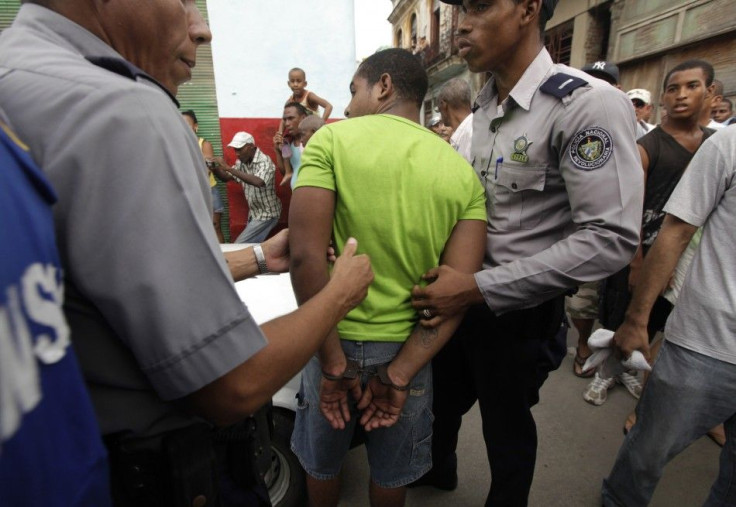Cuba Cracking Down On Dissent: Amnesty International

Over the past 24 months, Cuba has been cracking down on internal dissent through the harassment and arrests of activists, journalists and bloggers, Amnesty International reported on Thursday.
“Tactics have changed, but the repression in Cuba is as strong as ever,” stated Gerardo Ducos, a Cuba researcher at Amnesty International.
Within the first nine months of 2011, Amnesty documented 2,784 cases of human rights abuses, including the detention of 65 journalists in March alone. In total, there were 710 more incidents of abuse between January and September 2011 than during the whole of 2010.
“After the mass release of prisoners of conscience in 2011, we have seen authorities sharpening their strategy to silence dissent by harassing activists and journalists with short-term detentions and public acts of repudiation,” Ducos added.
The report comes just days before Pope Benedict XVI is scheduled to visit Cuba in a trip that has been panned by some critics but which the Vatican believes will promote democracy.
According to Amnesty, laws against “public disorder”, “contempt”, “disrespect”, “dangerousness” and “aggression” are undermining any reform policies in Cuba.
“Cuba has seen worsening repression when it comes to human rights. What we want to see happening is for activists to be able to carry out their legitimate work without the fear of reprisals,” said Ducos.
The human rights organization also focused upon four Cuban activists who have been subjected to prolonged detentions. The four -- Michel Lima Cruz, Marcos Maiquel Lima Cruz, Yasmin Conyedo Riveron and Yusmani Rafael Alvarez Esmori -- are now considered “prisoners of conscience” by Amnesty. Both of the Lima Cruz brothers have been in jail since December 2010, where they were convicted of “insulting symbols of the homeland,” and the other two were jailed in January on trumped up charges, the group claims.
Ironically, over the past two years, the Havana government has undertaken a series of free market reforms in an effort to re-energize the island's moribund economy and gradually move away from the Marxist system. However, these changes have apparently not led to an easing of human rights abuses.
© Copyright IBTimes 2025. All rights reserved.





















